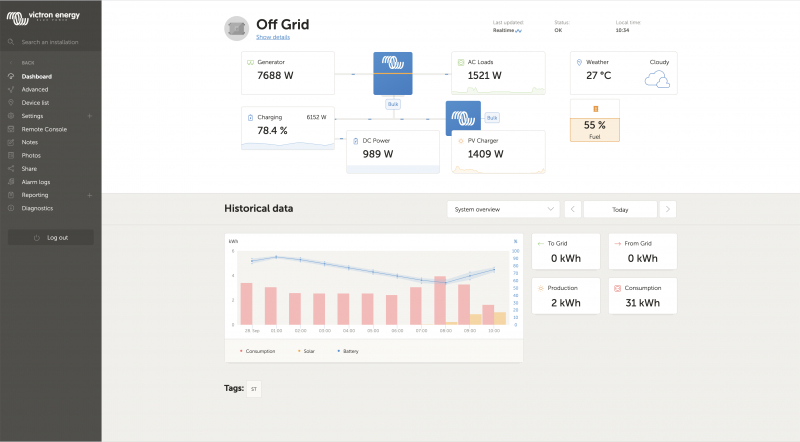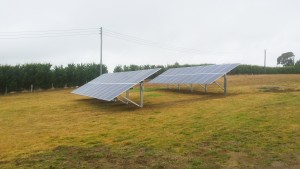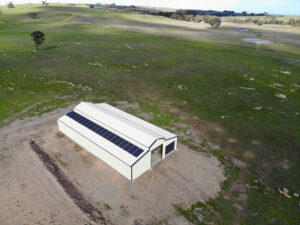

In the pursuit of a sustainable future, the energy sector has witnessed remarkable advancements in recent years. One area that has experienced a profound transformation is off-grid power systems. With the help of digital technologies, off-grid power living has moved from time-consuming, high-maintenance, unreliable, and frustrating – to the highly-automated, low-maintenance, reliable systems we see today.
At the heart of this revolution lies smart energy management. Digital technologies have enabled the creation of sophisticated energy management systems that monitor, control, and optimise energy production and consumption. Solar panels and other renewable sources can be integrated into these systems to generate power. Sensors gather data on energy levels, weather conditions, and consumption patterns, allowing for real-time adjustments to optimise efficiency. Moreover, sophisticated battery management systems ensure the longevity and optimal performance of the battery bank – the heart of the off-grid system.
In the past, off-grid power systems required physical monitoring and maintenance, which could be logistically challenging in remote locations. With digitalisation, remote monitoring and control have become feasible. IoT (Internet of Things) devices and sensors can transmit real-time data to technical staff, enabling timely identification of issues and proactive maintenance. This has significantly reduced downtime and improved the overall reliability of off-grid systems.
The integration of data analytics and compatible devices, such as smart EV chargers, in renewable energy systems is set to be a game-changer. These technologies analyse historical data to predict energy consumption patterns and weather conditions. This predictive capability allows integrated devices to make the most of the available solar energy, reducing the need for non-renewable energy sources in our electricity mix.
One of the most impactful outcomes of the digital revolution in off-grid power systems is its ability to empower rural and underserved communities. In many parts of the world, connecting to the centralised power grid is impractical due to geographical barriers or economic constraints. Digital technologies can provide these communities with a reliable source of electricity that they can self-manage, creating local economic and business opportunities.
The marriage of digital technologies with off-grid power systems isn’t just about convenience; it’s also about sustainability. By harnessing renewable energy sources and using them efficiently, these systems contribute to reduced greenhouse gas emissions and a smaller carbon footprint.




If your off-grid solar installation isn’t already incorporated in your house planning and building approval, then your council may require you to get this approval before the installation of your solar array/s

Some factors can be confidently estimated at the time of quoting, whilst others are subject to change, outside of your and our control. If any of these factors do change…

Living off the grid has always been a popular choice for individuals who want to live self-sufficiently and sustainably. However, the concept of off-grid living

Under the Home Battery Scheme (HBS), the SA Gov will provide 40,000 South Australian homes with subsidies up to $6,000 each for installing battery storage on their homes.
Electrical Contractor Licenses: VIC REC-31913, TAS 15608294, WA EC15901, SA PGE278927, NSW 279181C
We acknowledge the Traditional Owners of Country throughout Australia and recognise their continuing connection to land, waters and culture. We would like to specifically acknowledge the Kaurna, Wathaurong, Wonnarua, Wiradjuri and Boonwurrung people. We pay our respects to their Elders past, present and emerging.